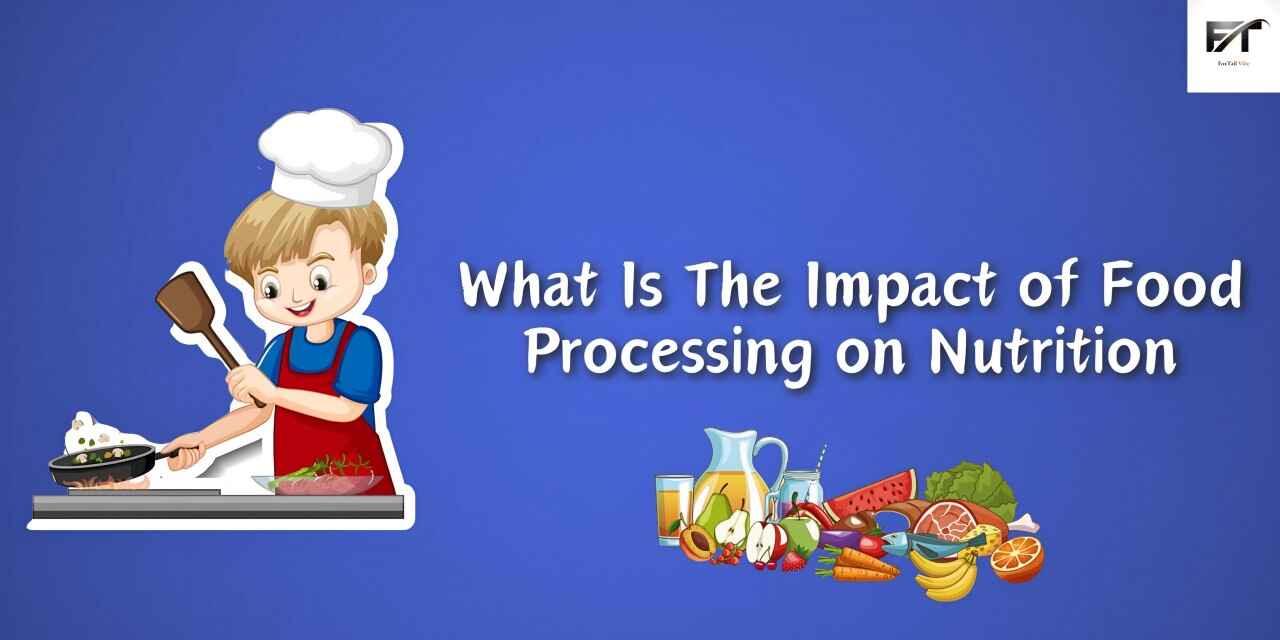Food processing is a crucial step in bringing food from the farm to our tables. It involves various methods such as washing, chopping, cooking, preserving, and packaging. While food processing plays a vital role in ensuring food safety, extending shelf life, and enhancing convenience, it can also have significant implications for the nutritional quality of the foods we consume.

What is Food Processing?
Food processing refers to any deliberate change made to food before it’s available for consumption. This can include mechanical, thermal, or chemical processes. Some common examples of food processing methods include canning, freezing, drying, baking, and milling.
Nutrient Loss During Processing
One of the main concerns with food processing is the potential loss of nutrients. During processing, exposure to heat, light, and oxygen can degrade certain vitamins and minerals. For example, vitamin C is sensitive to heat and can be lost during cooking or canning processes. Similarly, some B vitamins are water-soluble and can leach into cooking water or be destroyed by heat.
Enrichment and Fortification
To combat nutrient loss during processing, some foods are enriched or fortified. Enrichment involves adding back nutrients that may have been lost during processing. For example, white flour is often enriched with B vitamins and iron to replace nutrients lost during milling. Fortification involves adding nutrients that are not naturally present in the food. For instance, milk is often fortified with vitamin D to enhance its nutritional value.
Impact on Fiber Content
Food processing can also affect the fiber content of foods. Fiber, found in fruits, vegetables, whole grains, and legumes, is essential for digestive health and can help prevent chronic diseases such as heart disease and diabetes. However, processing methods such as milling and refining can remove the fibrous outer layers of grains, reducing their fiber content. Choosing whole grain products over refined ones can help maintain adequate fiber intake.
Added Sugars and Sodium
Another concern with processed foods is the addition of sugars and sodium. Many processed foods, such as sugary drinks, snacks, and packaged meals, contain added sugars and sodium to enhance flavor and extend shelf life. Excessive consumption of these additives has been linked to an increased risk of obesity, type 2 diabetes, and hypertension. Reading food labels and choosing products with lower sugar and sodium content can help mitigate these risks.
Processing and Food Safety
While food processing can sometimes compromise nutritional quality, it plays a crucial role in ensuring food safety. Processes such as pasteurization, canning, and irradiation help kill harmful bacteria and pathogens that can cause foodborne illnesses. Proper food handling, storage, and cooking techniques are also essential for minimizing the risk of foodborne illness.
The Importance of Balance
While it’s important to be mindful of the nutritional implications of food processing, it’s also essential to maintain a balanced diet. Incorporating a variety of minimally processed foods such as fruits, vegetables, whole grains, lean proteins, and healthy fats into your diet can help ensure you’re getting the nutrients your body needs. Additionally, limiting the consumption of highly processed foods high in added sugars, sodium, and unhealthy fats can help promote overall health and well-being.
Food processing is a necessary part of our modern food system, but it’s essential to be aware of its potential impact on nutrition. By choosing a variety of minimally processed foods and reading food labels carefully, you can make informed choices that support your health and well-being. Remember, balance is key, and moderation is key when it comes to enjoying processed foods as part of a healthy diet.
Also Read – How to Spot Hidden Sugars and Unhealthy Additives
